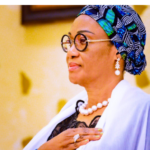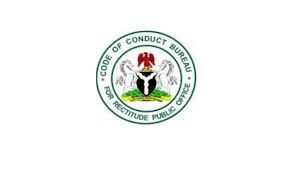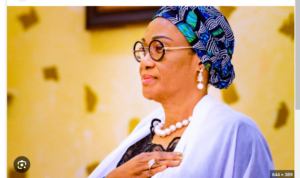Ganiyu Obaaro
The Code of Conduct Bureau , CCB, like its sister judicial arm, the Code of Conduct Tribunal, CCT, are anti-corruption agencies established by the Federal Government of Nigeria to investigate and fight corruption.
Similarly, the Economic and Financial Crime Commission, EFCC, and the Independent Corrupt Practices Commission, ICPC, play a similar role in the fight against corruption.
Over the years, these anti-graft agencies have been operating independently, and sometimes, playing complimentary roles in the sustained fight against sleaze and other corrupt activities by government officials.
However, several questions begging for answers have been asked by a critical Nigerian audience as to the CCB’s performance since its establishment in 1989.
The CCB is a frontier agency set up by the Federal Government of Nigeria to fight against corruption. Its main purpose, according to the third schedule of the 1999 Constitution,(as amended), are, among other roles: to receive and verify the assets of public officers as declared by them as stated in paragraph 12 of the first phase of the 5th schedule to the Constitution; to examine the declared assets in line with what is required by virtue of the code of custody of any law, and to be in charge of the declared assets and make them available should there be any need or call for an inspection by any citizen of the country.
In fact, the CCB has the exclusive powers to prosecute violators of the code of conduct for public officials, including non-declaration of the assets, at the code of conduct tribunal, its sister agency.
Nigerians have described the two critical bodies as ‘toothless bulldogs’ that can only bark, but not bite, going by what some of them see as their unexciting activities over the years, despite incurring huge financial costs on the nation.
Indeed, beyond these, what makes the Bureau’s situation worse in the public domain, is that the last time it was known to have investigated and prosecuted any major case was in 2019, when it brought the celebrated case of the then Chief Justice of the Federation, Walter Onnoghen before the tribunal.
Four years after the case, nothing has been heard from the Bureau. Yet, there is evidence of large scale public corruption all over the country.
However, the Chairman of the Bureau, Professor Isa Muhammed, said his agency was working to discharge its statutory duties. For example, he said his Bureau participated actively in the 2023 general elections.
Muhammed said that for the first time in the history of the Agency, it ‘deployed officers to monitor the elections’. It has however not revealed the outcome of its findings. Now, its focus is on the assets declaration of public officers who are leaving office this month.
Recall that public officers, including President Muhammadu Buhari and Vice President Professor Yemi Osinbajo, who are expected to declare their assets before vacating offices come May 29, 2023, had previously done so in 2015. The Bureau is expected to check their declaration and ensure that they match expectations, given their remunerations as political office holders.
Muhammed says that if public officers comply with the Code by not engaging in corrupt practices, there would be less dissipation of energy and spending of money on the prosecution of cases. But the quarrel of Nigerians is that there is no evidence of prosecution despite the pervasive corruption, which is attributed to its Control by the Executive Branch.
Perhaps to address that problem, some members of the National Assembly want the CCB and CCT to be removed from the control of the Presidency and, instead, taken to the judiciary, where they claim, they rightly belong, in line with the separation of powers among the three tiers of government-Executive, Legislature and Judiciary. This will require the amendment of the relevant Acts setting up both institutions. There are other suggestions that the Agencies should be included in the nation’s school curriculum, while serious public enlightenment should be stepped up by the government to create greater awareness about their roles in the nation. The critical point, however, is that whatever is done, there is the need to ensure that public sector corruption is checked. And the CCB holds the key. If it is indeed well equipped and funded, it should be able to operate as an independent agency with the resources and personnel to investigate the asset claims of public servants and those captured by its laws and prosecute the defaulters diligently. Until it is able to do that, there will continue to be loss of public confidence in its work.










More Stories
Fubara reportedly prostrates, begs for forgiveness during peace meeting with Wike
2027: Atiku’s aide reveals his principal’s plan to unseat Tinubu in coalition with Obi
Again, Tinubu’s former aide, Hakeem Baba-Ahmed, advises him not to contest in 2027